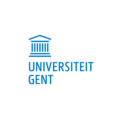In short
The Severe Acute Respiratory Syndrome Coronavirus 2 (SARS-CoV-2) is the virus responsible for the COVID-19 epidemic. As of January 2021, several variants are cocirculating in the EU and when antiviral drugs and vaccines will be implemented, this can increase even more rapidly.
SARS-CoV-2 is present in faeces of infected humans, which means that a wastewater sample can contain several viral strains from different individuals. In the COVIDDIVER project, Sciensano develops a method to detect the diversity within these samples. This gives an idea of the diversity of the circulating strains of SARS-CoV-2 in the Belgian population.
Project description
The variability of the novel coronavirus (SARS-CoV-2) plays an important role in the design of accurate diagnostic tests as well as in the development of antiviral agents and vaccines. In this project Sciensano develops a method to analyse high-throughput whole genome sequencing data of strains present in environmental samples (e.g. wastewater). The results of this project will contribut to identify the diversity of SARS-CoV-2 circulating strains (variants) in the Belgian population.
The presence of SARS-CoV-2 in wastewater is mainly the result of its presence in the faeces from infected humans. Consequently, one wastewater sample can contain several viral strains originating from different individuals. Sciensano develops a strategy at both the wetlab, by performing whole genome sequencing on samples, and bioinformatic level, by analysing this data computationally, to allow the identification of these diverse strains in order to provide a global picture of the diversity of SARS-CoV-2 strains in the Belgian population. We do this in 2 steps:
- The in silico approach comprises mixing WGS data and analysing them.
- The in vitro approach consists of optimising and applying the existing sequencing strategy based on PCR targeting the whole genome of SARS-CoV-2 using artificial mixtures containing different variants strains.
The results of this project will contribute to evaluate the diversity within SARS-CoV-2. As of January 2021, some variants are cocirculating, but when antiviral drugs and vaccines will be implemented this can increase even more rapidly. In addition, these variants could have a negative impact on the efficiency of the diagnostic assays. This approach supports the current epidemiological surveillance. In addition, this type of surveillance could be extended to other pathogens.
Sciensano's project investigator(s):
Service(s) working on this project
Partners



